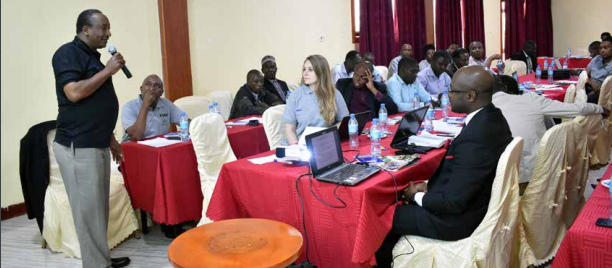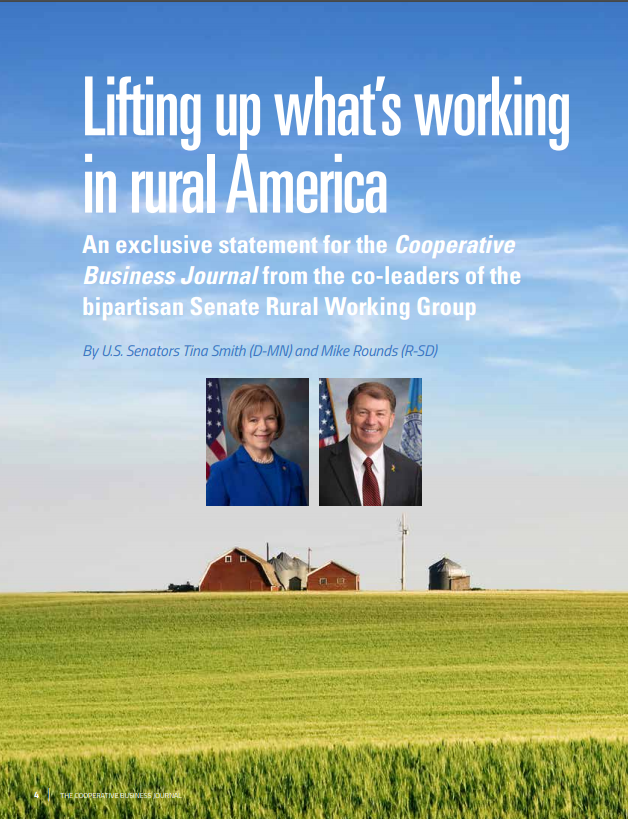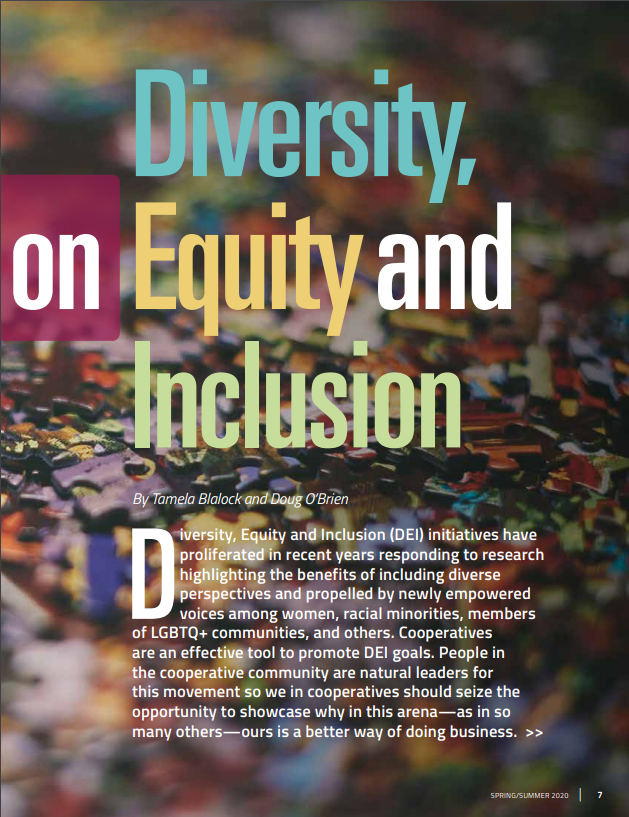Spring/Summer 2020
The Case for Clarity
A legal framework for inclusive co-ops and stronger economies
By Virginia Brown and Camila Piñeiro Harnecker
Diversity, Equity and Inclusion (DEI) is more important today than it has ever been for the cooperative movement in the U.S. and globally. Many argue that DEI is inherent in the cooperative values and organizational principles. Certainly, cooperatives are much more equitable than conventional private businesses because they are democratically governed and net revenues are distributed among members based on their patronage (volume of transactions with the cooperative) and not their capital.1 Because cooperatives primarily exist to satisfy the needs of their members—not maximize profit— and are guided by solidarity, they tend to include people from all economic strata. Indeed, in many low-income communities, cooperatives are the only businesses willing to provide vital goods and services such as housing, healthy food, electricity, broadband, banking and credit.
However, the participation of women, youth, people with differentiated abilities and other historically marginalized groups in cooperatives is, in general, relatively low. While cooperatives—as democratically-run, purpose-driven and people-centered businesses—are better prepared to do so, they need to work hard just like other businesses to be more inclusive and promote diversity and equity through their policies, practices, organizational structures and culture.
As Senior Vice President of Corporate Affairs at National Cooperative Bank John Holdsclaw IV noted in a Co-op Weekly article, “Diversity, Equity and Inclusion is no longer a ‘soft issue’—it is a competitive necessity. Cooperative businesses are no different in their need to fully engage in DEI practices that, coupled with the cooperative principles, can provide a competitive advantage.” Furthermore, as NCBA CLUSA’s President and CEO has explained, cooperatives are natural leaders of the inclusive economy. “Historically, people have created cooperative businesses to solve problems and gain access to the economy,” O’Brien said. “Today, cooperatives continue this critical work by creating more inclusion in the economy.”
Why legal and regulatory frameworks for cooperatives matter
For cooperatives to achieve their intrinsic potential of providing opportunities for all people, it is critical to develop legal and regulatory frameworks that allow them not only to grow, but to do so while staying true to their values of openness, equality, solidarity and social responsibility. In the U.S., cooperative development faces numerous legal and regulatory obstacles, ranging from personal guarantee requirements hindering cooperative businesses from accessing Small Business Administration loans to other issues with accessing capital and insurance, and even the absence of legal recognition for certain types of cooperatives, including worker, consumer and multi-stakeholder.
For many non-agricultural cooperatives—which do not enjoy lower tax burdens, priority in public procurement and other preferential treatment— the additional costs or lower revenues that cooperatives incur to achieve their social goals can render them uncompetitive. Indeed, many only exist in places where for-profit firms find no value in serving. NCBA CLUSA, together with its members and cooperative partners, works hard to advance and protect cooperative enterprise through its advocacy and programs.

There is evidence that favorable legislation for cooperatives leads to more inclusive national cooperative movements and stronger economies. While cooperative movements have emerged in some countries without adequate legislation, they achieved more once legislation was passed that recognizes the cooperative difference and sets up an enabling environment and support ecosystem that grows and protects them. We find well-known examples of the former in the Basque region of Spain; the Emilia Romagna region of Italy; and Quebec, Canada where cooperatives have the highest concentration and participation in the local economies. But in Uruguay, Kenya and Cuba, now strong cooperative movements only really grew once cooperative legislation was passed in the late 1940s, early 1970s and late 1970s, respectively.3
Worldwide, local rules and their enforcement are some of the biggest barriers for people and communities to implement cooperative solutions. Global organizations such as the International Cooperative Alliance, International Labour Organization (ILO) and United Nations recognize this global challenge and understand that cooperatives can’t reach their full potential when they don’t operate in an enabling environment that facilitates their development—or at least grants them a level playing field with other forms of business. Through its Cooperative Promotion Recommendation4, the ILO has called for the “implementation of public policies for the promotion of cooperatives” and urged member states to “adopt specific legislation and regulations on cooperatives, which are guided by the cooperative values and principles… and revise such legislation and regulations when appropriate.”
Promoting enabling environments for cooperatives
The U.S. Agency for International Development (USAID) also recognizes this challenge and seeks to tackle it through the Congressionally-earmarked Cooperative Development Program (CDP), which includes improving enabling environments for cooperatives among its core pillars.
Through the USAID-funded CDP, NCBA CLUSA’s Creating an Environment for Cooperative Expansion (CECE) project promotes more favorable legal and regulatory frameworks for cooperatives. The CECE project works in Guatemala, Peru, Kenya, Tanzania and Madagascar—all countries where cooperative law reform processes are ongoing. To start, NCBA CLUSA brought together international cooperative experts and local lawyers to identify the enabling and disabling elements for cooperative development in each country’s law.

To assess the cooperative law in each of these countries, NCBA CLUSA used a tool designed as part of the Cooperative Law and Regulation (CLARITY) Initiative that was developed more than 15 years ago by the Overseas Cooperative Development Council (OCDC) and its members, including NCBA CLUSA, Venture 37 (formerly Land O’ Lakes International Development), the National Rural Electric Cooperative Association (NRECA), Global Communities (formerly Cooperative Housing Foundation), and others through USAID support. CLARITY is comprised of a suite of methodologies, strategies, tools and publications to aid countries in reviewing, updating and advocating for more enabling legislation for cooperatives.
The CLARITY Scorecard is a matrix of nine “CLARITY principles” and 12 “indicators” that are assessed in a particular cooperative law. The CLARITY principles are based on the 7 Cooperative Principles, highlighting those aspects most related to legislation. The indicators reflect elements of organization within cooperatives and the cooperative sector in a country that are critical for cooperative development. The assessed law’s articles are mapped to the corresponding CLARITY principles and rated based on how well they adhere to each specific indicator. This analysis helps pinpoint the enabling and disabling features of a cooperative law and provides a rationale for why these elements are considered enabling or disabling.
For example, one of the CLARITY principles is “promoting equitable treatment.” If a cooperative law does not treat cooperative businesses fairly compared to other forms of business, then the law is disabling in this regard. Another CLARITY principle is “protecting autonomy and independence.” Yet in many countries, laws allow heavy-handed government intervention in cooperatives’ affairs. In some cases, annual member meetings require the presence of a cooperative officer from the government, and annual budgets must be approved by the government. Meanwhile, other types of businesses are free from such incursions into their operations, management, governance and decision-making. “Respecting voluntary membership” is another important CLARITY principle. When cooperatives have unequal footing compared to other business models, it becomes difficult to serve their founding members—let alone open membership to new, more diverse members.
The CLARITY scorecard, however, is more than an assessment tool. It brings the cooperative principles to life in a dynamic way that facilitates more focused, accessible and productive conversations with local cooperative stakeholders about the need to improve legislation and policy. The CLARITY initiative is designed to facilitate inclusive local ownership by cooperative stakeholders of advocacy, education and reform processes that tend to go beyond legislation, reflecting a need for broader ecosystem changes.
Cooperative stakeholder engagement in Madagascar
In 2017, at the request of the Government of Madagascar and through funding under the previous round of the USAID CDP, NCBA CLUSA embarked on an activity to review Madagascar’s cooperative law and establish a national cooperative development strategy. NCBA CLUSA engaged an international cooperative law specialist and a lawyer in Madagascar to conduct the CLARITY analysis and provide recommendations for a revised cooperative law. NCBA CLUSA also teamed up with local consulting firm Finances Technologies Human Resources Management (FTHM), and fellow cooperative development organizations (CDOs) World Council of Credit Unions (WOCCU) and HealthPartners to conduct a cross-sector cooperative field assessment in multiple regions of the country. Afterward, the consortium hosted a cooperative stakeholders’ workshop with more than 100 participants to understand the cooperative landscape better, including the challenges and opportunities for cooperatives with a focus on the intersections of agriculture, health and finance.
By first consulting cooperative leaders and members at the village level and then validating field-based findings at the workshop, the consortium maximized participation of all stakeholders, provided space to consider crucial information from the field, and generated buy-in for this process to improve the enabling environment. The assessment served as a foundational document for the national strategy.
NCBA CLUSA and its partners conducted a second workshop a few months later to present the draft national strategy for cooperative development and gather feedback from cooperative stakeholders across sectors. FTHM incorporated this feedback into a revised strategy that was later adopted by the Ministry of Industry, Trade and Artisanry (MICA). At this workshop, the international cooperative law specialist and the Malagasy lawyer presented the findings and recommendations from the CLARITY analysis so stakeholders could learn firsthand the steps needed to promote more favorable legislation for cooperative businesses. NCBA CLUSA continues to support MICA with the cooperative law reform process through the CECE project.

Modernizing cooperative law in Peru and Guatemala
CLARITY analyses and accompanying stakeholder workshops have become critical activities for the CECE project as part of its objective to improve legal and regulatory frameworks as an important condition for cooperatives to thrive—in Madagascar and beyond.
In Peru, a CLARITY analysis was recently completed. It highlighted how Peru once had a strong cooperative sector backed by a then advanced cooperative law passed in 1976, but it has been systematically undermined by other legislation since the 1990s. There is no institution with the mandate to promote and/or regulate the cooperative sector, which is a key enabling factor for its consolidation and expansion. NCBA CLUSA supported Peru’s National Confederation of Cooperatives (CONFENACOOP) in their analysis of new cooperative legislation that was proposed by the executive branch without consulting with the cooperative sector, which helped in the decision to suspend it. This created an opportunity for organizations that represent cooperatives to work with ministries and other public institutions to design a new cooperative law. The CECE project hopes to organize and co-host cooperative stakeholder meetings once the current COVID-19 pandemic is overcome, but in the meantime is jointly developing a proposal to update Peru’s co-op law with key co-op stakeholders.
In Guatemala, more than 70 cooperative stakeholders came together in October 2019 to discuss the CLARITY analysis of the country’s decades-old cooperative law. Participants included leaders from cooperatives, cooperative federations and confederations, government officials from several ministries, civil society and advocacy organizations, academia and other international development NGOs. The workshop shared key findings and positioned the cooperative sector to play a bigger role in the reform process being led by the Congress of the Guatemalan Republic.
“The National Institute of Cooperatives (INACOP) has made enormous progress and, despite financial obstacles, has managed to implement important modernization processes in support of the cooperative sector,” said Humberto Maldonado, former chair of the INACOP Board of Directors. “The CLARITY analysis…will contribute to the modernization process required by the sector and will be of great support for the revision of a law more than 40 years old.”
Promoting equitable treatment for cooperative businesses
In Tanzania, the government is poised to pass a revised cooperative law that incorporates approximately 80 percent of the recommendations outlined in the CLARITY cooperative law analysis completed in August 2019. In collaboration with local partner Rural Urban Development Initiatives (RUDI), the CECE project hosted initial meetings with key cooperative sector actors to obtain buy-in and consensus, and then with a larger stakeholder group to share the methodology and findings. Led by the Tanzanian Cooperative Development Commission (TCDC) with support from RUDI and the CECE project, key cooperative sector stakeholders have used the CLARITY analysis to inform the proposed law revisions. The analysis also serves to educate those involved in the law review process. Like all other businesses, cooperatives should be treated as autonomous and independent enterprises operating within a legal and regulatory framework that defends that equity.
A CLARITY analysis and stakeholder meeting to share key findings was also conducted in Kenya in January 2020. The international cooperative law specialist worked in Nairobi for two weeks with a legal team from the State Department of Cooperatives (SDC) and leadership from the Cooperative Alliance of Kenya (CAK) to review the Cooperative Societies Act. The cooperative law revision process is just beginning and will need to consider many factors, including the 2010 Constitution, National Cooperative Policy and County Government policies. The CLARITY analysis can hopefully serve as a north star, ensuring that law revisions promote cooperatives’ autonomy and separate duties for registration, promotion, supervision, regulation and dispute resolution performed by the SDC and other cooperative sector actors.
Promoting DEI within cooperative membership
As previously mentioned, the CLARITY principles were designed to help analyze whether cooperative legislation includes cooperatives as a viable form of business and treats them equitably and fairly. Taken a step further, these principles also impact the ability of a cooperative to promote diversity, equity and inclusion in its membership. It’s this second layer—addressing DEI within cooperative membership—that is not sufficiently incorporated in the current CLARITY tools and methodologies and should be better expressed for future cooperative law and sector analyses.
Through CLARITY analyses across the five countries in which the CECE project operates, a pattern emerged: women’s low participation in the membership of farmers’ cooperatives. This disparity reflects the fact that legal systems— including cooperative legislation—benefit men disproportionally, leaving women with very limited access to the ownership of land and other assets.
Farmers’ cooperatives tend to be formed by family farms. While women frequently do most of the work, membership is often limited to men, who are considered heads of households.
This unfair situation has been tackled differently in various countries. In Kenya, the constitution stipulates that women must be represented by at least one-third in appointed or elected bodies (including cooperative boards), but this is not reflected in the current cooperative law. Some male cooperative members have decided to pass ownership of part of their assets (land, coffee plants, cows, etc.) to their wives so they are able to join as full members of the cooperatives, though this is not a widespread practice. In Peru, the National Committee for Women Coffee Producers proposed changing legislation so that membership of producer cooperatives extends to the conjugal society (the couple, whether in matrimony or just living together) and not just the head of the household. In this way, while each cooperative member—the conjugal society, representing the family business—would continue to have only one vote in the general assembly, women would be able to participate in general assemblies and their husbands would have to coordinate with them before exercising their vote.
Youth engagement is also a global challenge, particularly for farmers’ cooperatives that usually have an aging membership. At the same time, there is a huge chance to include youth in economic opportunities as member-owners or employees and in skills-building opportunities for leadership, governance and community engagement. In many countries including the U.S., worker cooperatives in the services sector are becoming increasingly attractive to youth who see the value in democratically-run workplaces with social missions and pooling limited assets and resources. CICOPA’s 2018 Global Study on Youth Cooperative Entrepreneurship5 explores the critical importance of youth involvement in cooperatives to overcome the staggering rates of global youth unemployment, unstable employment and poor working conditions. The report also highlights the need for specific policies, legislation and programs promoting youth participation in cooperatives. Many countries around the world have taken concrete steps to create a more enabling environment for youth cooperative entrepreneurship. In 2016, Colombia introduced Law 1780 to help facilitate youth’s access to quality formal jobs. In addition to eliminating barriers for youth, providing exemptions and creating incentives for employers to hire young people, article 27 of the law specifically encourages the development and awareness-raising of the cooperative business model among youth. In Eswatini, the government established the Eswatini National Youth Cooperatives Alliance, an apex body mandated to promote the creation of youth cooperatives.6
A path forward
NCBA CLUSA, through its CECE project and in partnership with OCDC and its members, is determining next steps to revamp the CLARITY initiative and develop a CLARITY 2.0 toolkit that more deliberately reflects the DEI framework and gives more attention to the key role that a support ecosystem plays in facilitating the growth and development of cooperatives in a country. The current tools and strategies within CLARITY, though based on the cooperative principles and designed to promote inclusive participation from local cooperative stakeholders in improving enabling environments, can be improved to foster more purposeful engagement of all types of cooperative stakeholders and ensure that analyses and recommendations intentionally address issues of diversity, equity and inclusion in cooperative legislation, policy and membership.
During our global fight against the COVID-19 pandemic when cooperation and solidarity are once again demonstrated to be critical for humanity, cooperatives have another opportunity to prove that collective action and taking care of the most vulnerable members of society is not only the right thing to do, but also benefits us all. As member-owned, member-controlled businesses formed to serve their communities, cooperatives—when given an enabling environment and support ecosystem— are well placed to promote inclusive, equitable development for all people.
Camila Piñeiro Harnecker, Technical Specialist for Cooperative Development, and Virginia Brown, Program Manager, are members of NCBA CLUSA’s Cooperative Development Practice






